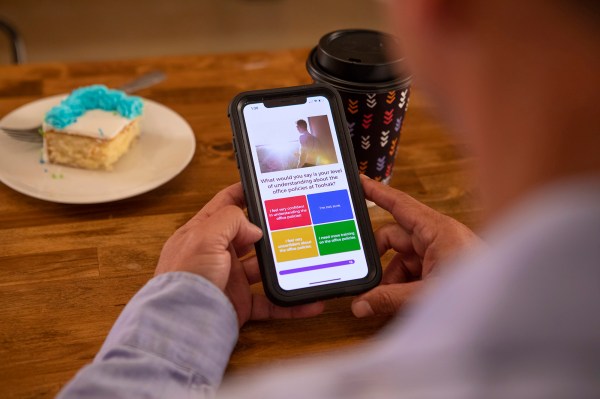
After announcing a modest $28 million raise earlier this year, the user-generated gamified e-learning platform Kahoot today announced a much bigger round to double down on the current surge in demand for remote education.
The Norwegian startup — which has clocked 1.3 billion “participating players” since launching in 2013 — has picked up $215 million from SoftBank, specifically by way of a “private placement to a subsidiary of SoftBank Group Corp., through issuance of 43,000,000 new shares.” The placement was made at 46 Norwegian Krone per share, working out to NOK1,978 million (or $215 million), and the funding will be used for acquisitions and also to continue its expansion.
Kahoot is traded on the Merkur Market in Oslo — a stepping stone between being a fully private startup and a publicly-listed company — and today the company is trading more than 15% up on the news. At market open today, it was valued at NOK22.2 billion, or about $2.4 billion — so by the end of the day that market cap is likely to have gone up as a result of today’s investment.
“Kahoot! is experiencing strong momentum and accelerated adoption as enterprises increasingly seek engaging, trustworthy and user-friendly ways to build corporate culture, educate and interact,” the company noted in a statement. “|At the same time, schools and educators are looking to enhance the learning experience, whether virtually or in the classroom. The Company intends to use the net proceeds from the Private Placement to finance accelerated growth through value-creating non-organic opportunities and continue to build a unique platform company.”
We are reaching out to SoftBank for a direct comment on the news — which was announced by Kahoot in the briefest of terms necessary for disclosure as a publicly-traded company — and will update as we learn more.
The startup has been building a two-pronged business: first, a platform aimed at school children to build and use, and browse and use other’s online learning content; and second, a platform where corporates can build, use, and use other’s corporate training materials. The former puts an emphasis on free usage, while the latter is a paid product.
In both cases, Kahoot’s content is built around the idea of gamification — learning designed as games — to make the process more fun and engaging. It has described itself as the “Netflix of Education” — but I think of it a little more like YouTube, because of the user-generated element of a lot of the material.
The company has been hugely successful in its model so far. It says that it has had 1.3 billion participating players, and 200 million games played with 100 million user-generated Kahoots in the last 12 months.
As a point of comparison, last month, when it announced an acquisition to boost its corporate learning business — it bought an enterprise engagement platform called Actimo for about $33 million — it said that it had counted some 1 billion “participating players,” on top of some 4.4 billion users since first launching the platform in 2013.
SoftBank is not the company’s first high-profile investor. Other backers in the company include Microsoft and Disney, as well as the well-known regional VCs Northzone and Creandum.




















